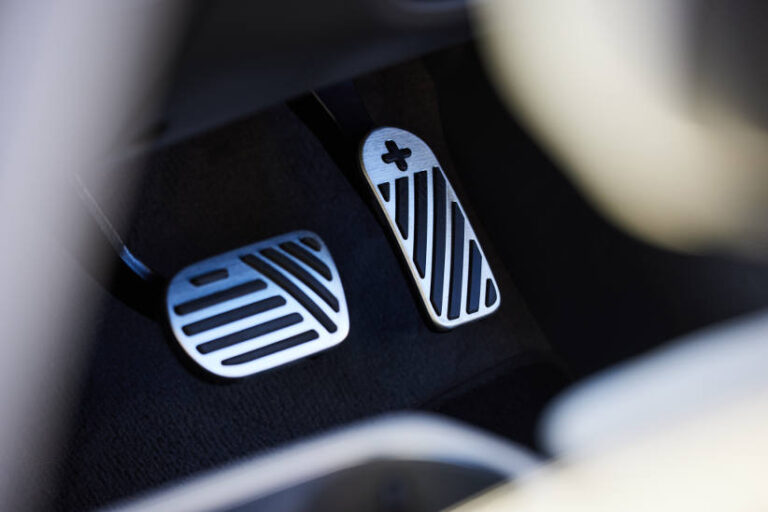In March the QLD Premier announced a $3,000 rebate for Queenslanders that buy an electric vehicles under $58,000. This incentive is part of the government’s Zero Emissions Vehicle (ZEV) Action Plan for the next two years and is supported by a number of other initiatives.
This strategy outlines how Queensland will shift to a zero emissions future. The five priorities are:
- Priority 1: Encouraging cleaner, greener transport modes
- Priority 2: Building ZEV manufacturing and supply chain capability
- Priority 3: Facilitating supportive ZEV infrastructure
- Priority 4: Driving towards renewables and smart charging
- Priority 5: Partnerships, innovation and advocacy.
The priorities listed above highlight the complexity of introducing EVs and other ZEV into the transport ecosystem. It’s not as simple as proving rebates to new car buyers that make EVs cheaper. Governments need to support the industry which encourages vehicle manufacturers and other suppliers to invest for the future.
VGA Managing Director Paul Sansom welcomed the recognition from Premier Palaszczuk that consumers are “overwhelmingly in favour of zero emission vehicle and she has moved decisively to facilitate their take-up”.
“Once again it has fallen to a state or territory leader to act on the profound change that EVs represent to personal mobility,” Mr Sansom said.
“Such initiative, however, again emphases the lack of a uniform national approach. Widespread adoption of EVs has broader societal and environmental benefits, not least the reduction of emissions and reliance on ever more expensive fossil fuel.”
VGA – which is comprised of the Volkswagen, Audi, SKODA and CUPRA brands – has strong ambitions over the next year to introduce a number of new models that will benefit from Queensland’s new policy.
The good news is Queenslanders are positive towards electric vehicles according to a public survey by Department of Transport and Main Roads in 2021.
- 63% of petrol/diesel owners want to know more information about EVs
- Perceived upfront costs are a likely barrier to purchasing an EV for many petrol/diesel owners
- 79% of diesel/petrol owners and 99% of EV owners said EV charging is cheaper than petrol
- More than 50% of current EV owners said their main motivation for purchasing an EV is environmental benefits
- 91% of EV owners are aware of the QLD Electric Super Highway, compared to 35% of petrol/diesel owners
- 99% of EV owners would recommend purchasing an EV to others
In 2022, common barriers to ZEV uptake, include:
- a higher purchase price than equivalent ICE vehicles
- a perceived lack of accessible charging/refuelling infrastructure and knowledge about smart charging capability
- limited ZEV model availability
- low public awareness on the benefits of owning a ZEV.
- Considering an ZEV
- increasing awareness and confidence in ZEVs
- promoting the benefits of zero emission journeys.
- Purchasing a ZEV
- upfront purchase incentives
- ongoing assessment of vehicle registration and vehicle registration duty concessions for electric vehicle owners investigating and piloting incentives that may help Queenslanders trial and or purchase an e-bike.
- Using a ZEV
-
- supporting industry to improve battery technologies
- raising awareness about battery technology, opportunities to use batteries to store energy and how to maximise battery life
- ensuring ZEV charging is sustainable by managing our energy supply and impacts on the electricity network
- informing EV owners (and potential owners) about best-practice charging behaviours to maximise financial benefits and support energy grid needs.
-
- Charging a ZEV
- appropriate blend of charging infrastructure that supports charging at times that are most beneficial to Queenslanders and the energy network
- support for industry and local government to establish localised charging solutions
- support for active e-travel infrastructure and charging
- awareness of the extensive Queensland Electric Super Highway (QESH) network.
- Advocacy
- consumer awareness campaigns
- readily available information
- showcases and events
- market research.
As part of achieving the emission reduction targets, the QLD Government is also transitioning its vehicle fleet, supporting the development of the battery industry, and providing a pipeline of quality second-hand ZEVs.
QFleet (the Queensland Government’s fleet manager) manages over 10,000 vehicles. The Queensland Government will mandate an approach across government to make sure all eligible fleet passenger vehicles transition to electric as current leases expire, where a ZEV alternative and sufficient charging infrastructure is available.
All QFleet’s eligible petrol vehicles will transition to ZEVs. Once the transition is complete, it is estimated that QFleet will progressively deliver 2,400 quality second-hand vehicles to the market each year (starting with the sale of 12 EVs in 2022).
Source – Queensland’s Zero Emission Vehicle Strategy – Action Plan (2022–2024)






